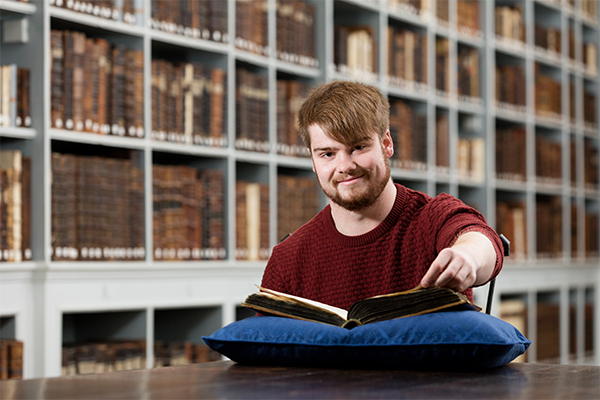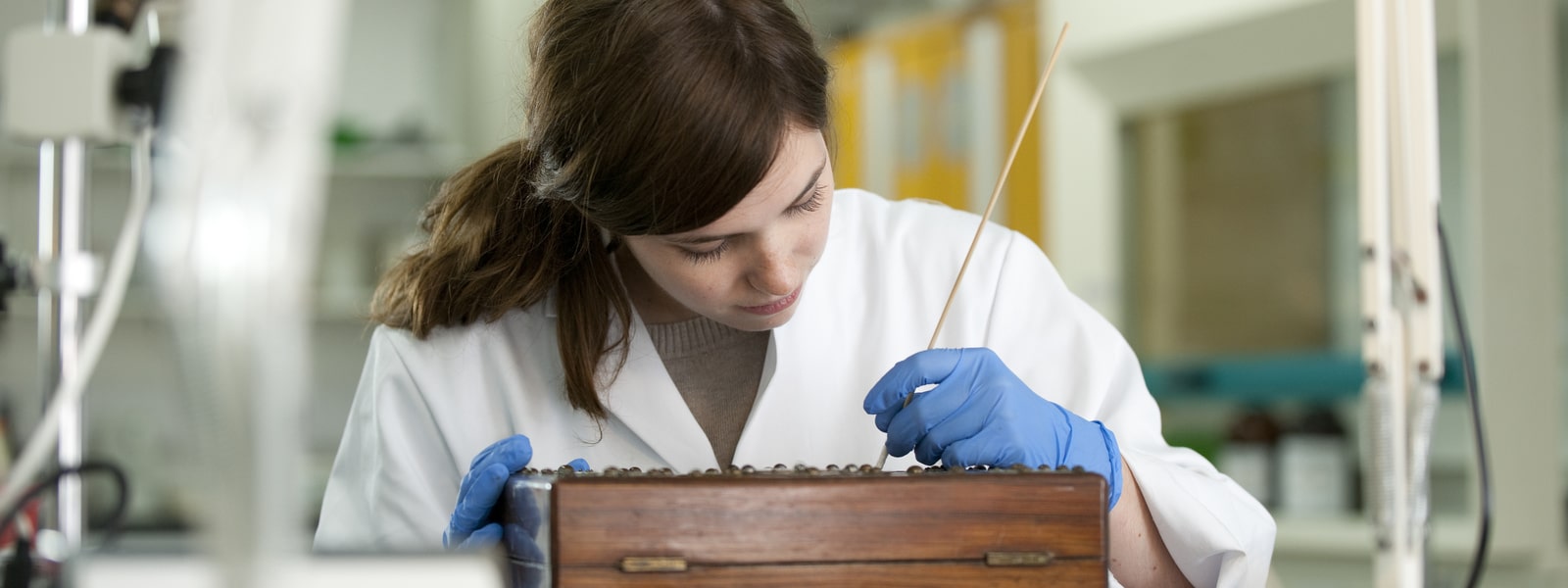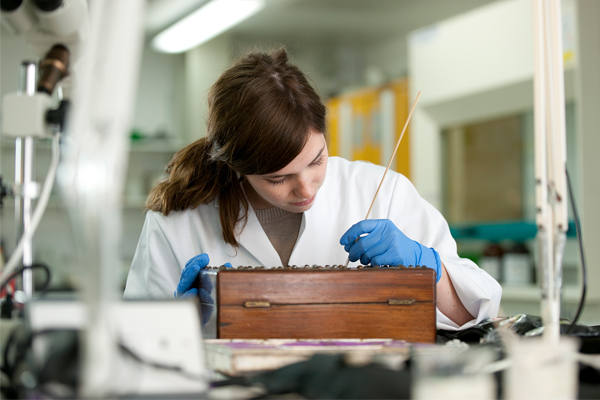Module Overview
This is a practical module covering the conservation treatment of one or more complex object(s) of cultural heritage. Exact content will depend on object type chosen. This module allows students to choose to specialise in a specific material discipline, or alternatively to pursue broader options.
Module Overview
This is a practical module covering the conservation treatment of one or more complex object of cultural heritage. Exact content will depend on object type chosen. This module allows students to choose to specialise in a specific material discipline, or alternatively to pursue broader options.
Module Overview
With changes in the employment patterns of conservators, the need for a diverse range of skills has become more pronounced.
This module complements skills learnt in the other core modules.
Students will learn through a combination of project based activities, critical reflection and co-creation. The module will build on background understanding and experience to increase their confidence and skills and prepare students to capitalise on a broad range of career possibilities beyond the university.
Module Overview
This module aims to develop knowledge of investigative techniques and its relevance to conservation and heritage science. Students will learn about a range of analytical methods and digital tools that can be used for monitoring and analysis of cultural heritage materials.
Module Overview
The module challenges conservation students to think broadly about the objects that they conserve. This module will encourage students to explore this process of assessing significance which supports institutions in attaining a deeper understanding objects and the values that they might hold for different audiences. This module will help students develop the analytical skills needed to assess the value of an object and how these fit into current professional structures within the heritage industry.
Lectures and workshops will explore different intellectual approaches material culture and how each might contribute to the meaning and significance of an object or collection. The assessments will encourage students to produce professional museological documentation and relate the content of this module to collections management.
Module Overview
This module aims to give students the opportunity to apply and develop their existing knowledge and skills to an independent research project in an area of their own choice. The students will further develop, design and implement a research project in consultation with a supervisory tutor, and they will have the opportunity to reflect critically on a specialist area of cultural heritage relating to their Masters programme.
Please note that students are expected to cover their own travel, accommodation and general living expenses during the completion of the research project. These costs are likely to vary depending on where the student chooses to conduct their research.
Module Overview
The module provides the underpinning theoretical study for understanding the principles and practice of collections management and care. The module introduces student to the “life-cycle” of museum objects and covers key issues concerning collections development, management of the internal and external environment, collections documentation and care. Procedures such as collections surveys, risk management, and emergency planning will be considered.
Module Overview
This module is designed to address key issues in collections management, with a focus on digital collections. As well as aiming to introduce key theory and concepts, the module contains a strong practical dimension, as students have the opportunity to participate in the production of metadata, the development of a content management system and the application of a content management system to supporting exhibition development.





